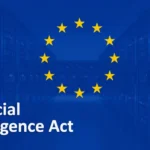She will meet notably with the leaders of Apple, Tim Cook, and Google, Sundar Pichai, as well as with two heads of OpenAI: the director of technology, Mira Murati, and the director of strategy, Jason Kwon .
The Commission indicates that it is “examining some of the agreements that have been concluded between major players in the digital market and developers of generative artificial intelligence (AI)” and wants in particular to “study the impact of these partnerships on market dynamics”.
“Since 2019, we have forged a partnership with OpenAI that has fostered greater innovation and competition in AI, while preserving the independence of the two companies,” responded a Microsoft spokesperson. “The only thing that has changed recently is that Microsoft will now have a non-voting observer on the OpenAI board,” he added.
Exponential growth
Generative AI makes it possible to create texts, photos, sounds or videos in just a few seconds, in response to a user request, for a wide range of uses.
Technology, whose growth is expected to be exponential, will revolutionize the work of certain professions, with an increase in productivity and an expected big impact on the competitiveness of companies.
Venture capital investments in AI within the EU are estimated at more than €7.2 billion in 2023. Europe hopes to have future champions like Aleph Alpha in Germany and Mistral AI in France.
But, given the gigantic financial resources deployed to develop them, competition authorities are concerned about the risk of capture of these innovations by a small number of digital giants such as Microsoft, but also Alphabet, Meta or even the Chinese Baidu.
The European Union agreed at the beginning of December on an unprecedented regulation of AI at the global level. It must make it possible to avoid certain excesses while promoting the growth of the market.
The EU has also adopted a digital markets regulation (DMA) which will apply at the beginning of March to better fight against the anti-competitive practices of the giants of the sector.
“Reasons to be concerned”
“Artificial intelligence has the potential to become the museum of antitrust horrors if we do nothing,” Benoit Cœuré, president of the French Competition Authority, declared at the end of November during a round table in Paris.
“There are reasons to be concerned. We risk seeing in this area the entire catalog of anti-competitive practices […] that is to say tied selling, group selling, obstacles to access to data, conglomerate effects and self-preference,” had -he explains.
The British competition watchdog (CMA) also announced at the beginning of December that it was examining the partnership between Microsoft and OpenAI.
The CMA therefore launched a call for comments “from interested parties and third parties”.
The European Commission initiated a similar approach, announcing on Tuesday that it was launching “two calls for contributions on competition”, one concerning “generative artificial intelligence” and the other “virtual worlds”.
Virtual worlds are immersive environments, based on 3D and extended reality technologies, used in particular for design or simulation tasks.
The Commission specifies that it has sent “requests for information to several major digital players”. She says she wants to gather opinions “on how competition law can help ensure that these new markets remain competitive”.
This article is originally published on lapresse.ca






